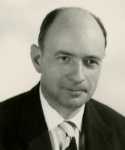In recent years, the United States has exemplified a certain communication paradox: we are more connected than ever, but it feels as if we have never been more divided.
While we have more social media, higher-quality phones, smoother digital streaming, more-sensitive microphones and crisp speakers, the distance separating us seems to have grown -- whether across the aisle, across the street, across town or across virtual space.
The 2020 impeachment trial of former President Donald Trump offered a clear example of this division. In a BBC article on the proceedings, George Washington University law professor Jonathan Turley lamented the misuse of his own testimony, as well as the writings of James Madison, by both sides. Neither side sought to listen to the other, both hearing only what they wanted, Turley said, calling this trial “the perfect verdict on our times.”
How can we understand this paradox? How did we get here, and what can Christian faith say to this situation?
Christians looking to think through these questions can find a helpful guide in the French 20th-century thinker Jacques Ellul (1912-1994).

Well known in North America in the 1960s for his writings on technology, Ellul explored diverse aspects of society and faith in his many works (some 60 books and 1,100 articles). He wanted both to understand the changing world around him and to offer resources for Christians living out their faith in this context.
When we look at the things he lived through, it is no surprise that he was deeply concerned with the shifting conditions of communication.
A brilliant student and hardworking young man, Ellul experienced a dramatic conversion to Christ around age 18. Comparable to German theologian Dietrich Bonhoeffer, Ellul was active in the resistance during the Second World War, at times risking his life to warn or aid those endangered by National Socialism and its French collaborators.
After a brief postwar stint as a city administrator, Ellul spent the rest of his life as a professor of the history of institutions in Bordeaux. He also notably worked for changes in the French Reformed Church and in education among youths in street gangs. Ellul received many international honors, including honorary doctorates from Aberdeen and Amsterdam -- in the latter case, alongside Martin Luther King Jr.
In 1935, Ellul was invited to Germany by Protestant associations. During this trip, he attended a Nazi rally and was stunned at how the crowd acted as one unit. It was difficult not to join in by lifting his own arm in salute, he later said. Startled by the power of the rally, Ellul poured great efforts into understanding what was going on in such situations.
Ellul’s thinking about political speech eventually led to his 1962 book “Propaganda,”which analyzed evolving 20th-century communication patterns.
According to Ellul, communication becomes propaganda when it no longer seeks to speak to people as individuals, to address them and leave them free to respond. Instead, citing Nazi propaganda minister Joseph Goebbels, “We do not talk to say something but to obtain a certain effect.”
Propaganda happens when speech becomes a tool -- whether the desired “effect” is a unified salute or increased sales, more votes or more “likes,” whether messages are intended to reassure or stir to action, to sway opinion or stimulate consumer demand.
For Ellul, propaganda posed a serious threat to human society. He even wrote that “the strength of propaganda reveals … one of the most dangerous flaws of democracy.” Propaganda makes dialogue and communication very difficult.
The rise of new visual media (cameras, television, film, computers, posters, billboards, etc.) created a situation in which the spoken human word was devalued. Ellul discussed these changes and proposed a Christian response in his book “The Humiliation of the Word.”
Christians, he argued, have important reasons for taking the spoken word very seriously. God chooses the word to communicate himself: creates by his word, reigns by his word, makes promises and covenants with his word, sticks to his word, calls humans to listen to his word and respond -- and in Jesus Christ, the fullness of God’s word, is present with us.
However, language is fragile; it can be abused. True dialogue demands time, attentive presence, disciplined listening and careful response. For a real encounter, our words must be intimately related to our lives.
Such dialogue seems hard to come by today. Perhaps surprisingly, our communicative paradox is not new but as old as humanity itself.
The Bible tells of another people marked by technological advances, expansive ambitions and communicative breakdown: the builders of the tower of Babel.
But the good news proclaimed by the Christian faith is that God is not indifferent but active in this situation.
Indeed, God’s active scrambling of the codes at Babel might be read as a merciful act, precisely to prevent the establishment of a reign of violence.
In the New Testament, the Christian life offers an alternative unity in the “ministry of reconciliation” (2 Corinthians 5:18). This ministry is marked not by self-exaltation but by self-humiliation that leads to loving service of others, by gentle and capable wisdom, and by a new unity of reconciled peoples in Christ.
Babel’s builders sought communal unity in technological projects that gave them power but that also increased their capacity for violence. In the making of “e pluribus unum,” the one-out-of-many to which the U.S. has long aspired, where do we place our hopes for unity? In our laws, our politicians, our communication systems? What do we do when laws seem to have lost their force, when politicians divide, when communication breaks down?
Ellul’s work prophetically points to the loving lordship of Jesus Christ as the true “one” that unites all the “many.” Christians are called to live a unity that transcends and relativizes all other divisions -- political, racial, social, national, biological, etc.
He invites Christians to be communicative innovators in a fractured postmodern world, committed to the specific task of weakening the sacred character that politics claims in our lives. He calls us to lay aside our manipulative intentions, to exit our echo chambers so we can hear one another and rehabilitate true communication.
If we can do so, we might rediscover -- behind the Democrat, the Republican or the enemy -- our neighbor.














